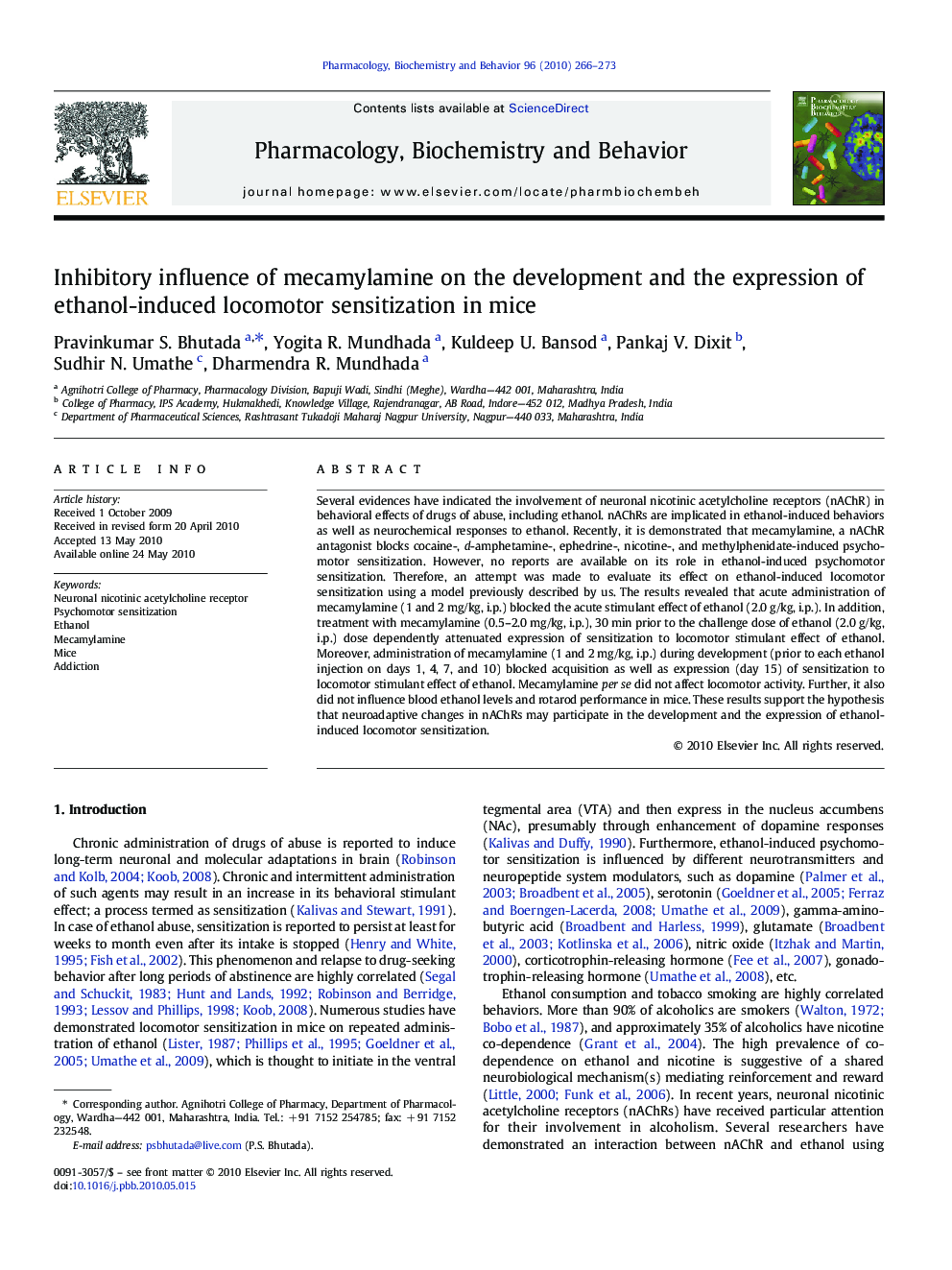| Article ID | Journal | Published Year | Pages | File Type |
|---|---|---|---|---|
| 2013283 | Pharmacology Biochemistry and Behavior | 2010 | 8 Pages |
Several evidences have indicated the involvement of neuronal nicotinic acetylcholine receptors (nAChR) in behavioral effects of drugs of abuse, including ethanol. nAChRs are implicated in ethanol-induced behaviors as well as neurochemical responses to ethanol. Recently, it is demonstrated that mecamylamine, a nAChR antagonist blocks cocaine-, d-amphetamine-, ephedrine-, nicotine-, and methylphenidate-induced psychomotor sensitization. However, no reports are available on its role in ethanol-induced psychomotor sensitization. Therefore, an attempt was made to evaluate its effect on ethanol-induced locomotor sensitization using a model previously described by us. The results revealed that acute administration of mecamylamine (1 and 2 mg/kg, i.p.) blocked the acute stimulant effect of ethanol (2.0 g/kg, i.p.). In addition, treatment with mecamylamine (0.5–2.0 mg/kg, i.p.), 30 min prior to the challenge dose of ethanol (2.0 g/kg, i.p.) dose dependently attenuated expression of sensitization to locomotor stimulant effect of ethanol. Moreover, administration of mecamylamine (1 and 2 mg/kg, i.p.) during development (prior to each ethanol injection on days 1, 4, 7, and 10) blocked acquisition as well as expression (day 15) of sensitization to locomotor stimulant effect of ethanol. Mecamylamine per se did not affect locomotor activity. Further, it also did not influence blood ethanol levels and rotarod performance in mice. These results support the hypothesis that neuroadaptive changes in nAChRs may participate in the development and the expression of ethanol-induced locomotor sensitization.
